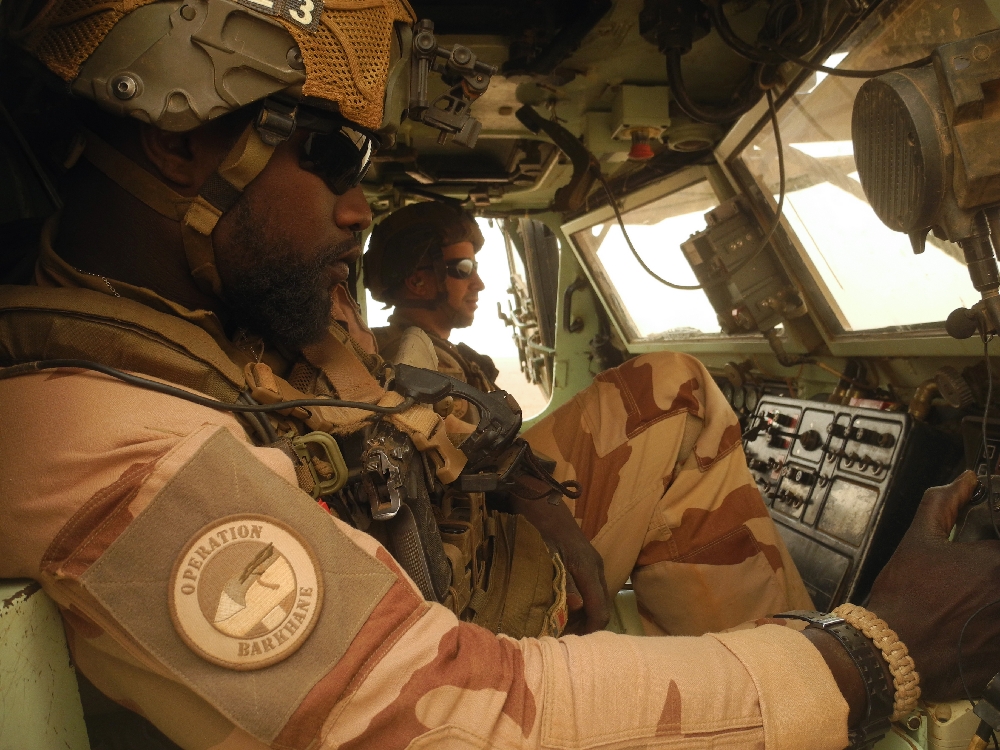Bamako (AFP) – French warnings about suspending military cooperation with Mali after the country’s second coup in nine months came into effect on Friday, army officials in the fragile Sahel state said.
Malian strongman Colonel Assimi Goita, who already led a coup in 2020, ousted the civilian transitional president and prime minister on May 24.
The second putsch has sparked diplomatic uproar, prompting the African Union and the Economic Community of West African States (ECOWAS) to suspend Mali.
France also said on Thursday that it would suspend joint military operations with Malian forces, and stop giving military advice.
The former colonial power has thousands of troops stationed in the Sahel to help fight jihadist violence that erupted in Mali in 2012 and now threatens the region.
A Malian army official who declined to be named said the French warning had already taken effect on Friday.
A Malian military expedition in the centre of the country had returned to the capital Bamako because of a lack of cooperation with the French, he said.
The official added that a French-initiated international alliance of special forces has started refusing to work with Malian troops.
“The French are continuing on their own,” he said.
France’s defence ministry said the suspension was a “conservative and temporary measure” pending “guarantees” that the ruling military will stage elections in February 2022.
Mali’s junta did not comment on the decision.
The country’s armed forces are poorly-equipped in their fight with the highly mobile insurgents.
They depend crucially on airpower and surveillance provided by the 5,100-man Barkhane force.
The French mission has jet fighters and drones at a base near Niamey, the capital of neighbouring Niger, as well as access to French military satellites and intelligence provided by allies.
– Opposition rally –
Meanwhile, supporters of the opposition M5 movement were due to rally in the capital Bamako on Friday, in a demonstration that could offer hints of Mali’s future political direction.
The rally is to mark the founding of the M5, the power behind mass protests last year.
Once distant, the military and the M5 now have a warmer relationship.
Goita may name a leading M5 figure as his new prime minister — a move that some argue could soften international criticism of the second coup.
The colonel is expected to be formally appointed as Mali’s transitional president in a ceremony on Monday, which would pave the way towards naming a civilian prime minister — a key international demand.
On August 18 last year, Goita led army officers in ousting elected president Ibrahim Boubacar Keita, following mass protests over perceived corruption and the bloody jihadist insurgency.
Though driving those protests, the M5 was sidelined from Mali’s post-coup administration.
This transitional government pledged to reform the constitution by October, and stage elections in February next year.
The M5 became a vocal critic, calling the transitional government a “disguised military regime.”
There has been a rapprochement between the group and the army since the May 24 coup, however.
Goita has said he would prefer to name an M5 figure as his prime minister and the group put forward one of its cadres, Choguel Maiga, as a candidate.
But that choice has in turn raised questions about Mali’s future, in particular concerning the potential role of religious leader Mahmoud Dicko, who is close to Maiga.
The influential imam was viewed as the figurehead of the M5 during the anti-Keita protests, but later distanced himself from the movement.
Maiga is also a vocal critic of the 2015 Algiers peace accord, a shaky agreement between the central government and several armed groups.
The deal, which has never been fully implemented, is seen as crucial to ending Mali’s grinding conflict.
Source: New feed


